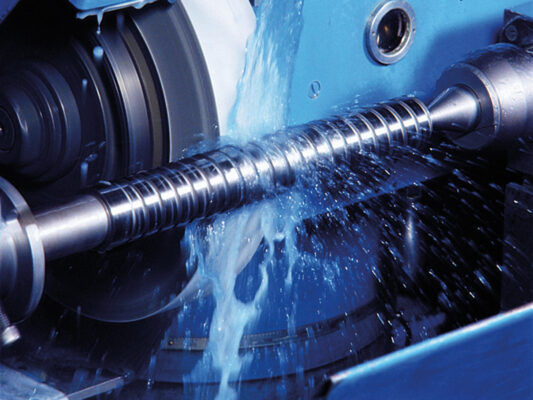Maximize Your Grinding Performance with the Right Coolant: A Comprehensive Guide to Types, Importance and Selection Factors
Discover the Best Grinding Coolant for Your Precision Grinding Needs
Table of Contents
What is Grinding Coolant ( Fluid ) /Grinding Coolant Oil?
Grinding coolant, also known as grinding fluid or grinding oil, is a liquid solution that is used in the grinding process to cool and lubricate the workpiece and grinding wheel.
Coolant helps to reduce the risk of overheating and to remove small chips of material that are generated during the grinding process. It also helps to extend the life of the grinding wheel and to improve the surface finish of the workpiece.
Importance of Grinding Coolant in Grinding Operation

The use of grinding coolant oil is important because it helps to improve the efficiency and quality of the grinding process. Some of the benefits of using grinding fluid include:
Cooling
Grinding coolant helps to remove heat from the grinding process, which prevents overheating of the workpiece and grinding wheel.
Lubrication
Grinding coolant oil helps to lubricate the grinding process, which reduces the friction between the workpiece and the grinding wheel. This helps to extend the life of the grinding wheel and improve the surface finish of the workpiece.
Chip removal
Grinding Oil helps to remove small chips of material that are generated during the grinding process. This helps to prevent clogging of the grinding wheel and improves the overall efficiency of the grinding process.
Surface finish
Grinding coolant Fluid helps to improve the surface finish of the workpiece by reducing the friction between the workpiece and the grinding wheel. This can produce a smoother, more accurate finish on the workpiece.
Improved accuracy
Grinding coolant can improve the accuracy of the grinding process by reducing the risk of overheating and ensuring that the grinding wheel is properly lubricated.
Types of Grinding Coolants
There are several types of grinding coolants, including:
- Water-based coolants
- Oil-based coolants
- Synthetic coolants
- Semi-synthetic coolants
Water-based coolants
Water-based coolants are made from a mixture of water and a chemical additive. They are typically used for surface grinding and internal grinding, and are effective at removing heat from the grinding process.
Water-based coolants are easy to use and are environmentally friendly, but they can be prone to bacterial growth if they are not properly maintained.
Oil-based coolants
Oil-based coolants are made from a mixture of oil and a chemical additive. They are typically used for cylindrical grinding and centerless grinding, and are effective at lubricating the grinding process.
Oil-based coolants are more resistant to bacterial growth than water-based coolants, but they are more difficult to clean and are not as environmentally friendly.
Synthetic coolants
Synthetic coolants are made from synthetic oils and chemical additives. They are designed to provide superior cooling and lubrication properties, and are often used for high-precision grinding applications.
Synthetic coolants are more expensive than water-based or oil-based coolants, but they are more durable and have a longer shelf life.
Semi-synthetic coolants
Semi-synthetic coolants are made from a mixture of synthetic oils and water.
They provide a balance between the cooling and lubrication properties of synthetic coolants and the ease of use and environmental friendliness of water-based coolants.
Factors That Influence Grinding Coolant Selection
There are few common factors to consider when selecting a coolant for grinding, including:
- Compatibility with the workpiece material: The coolant should be compatible with the material of the workpiece to avoid reacting with it or causing corrosion.
- Lubrication properties: The coolant should provide sufficient lubrication to reduce the friction between the grinding wheel and the workpiece.
- Cooling properties: The coolant should be effective at removing heat from the grinding process to prevent overheating of the workpiece and grinding wheel.
- Stability: The coolant should be stable and not break down or become contaminated during the grinding process.
- Cost of Grinding Fluid: The cost of the coolant should be considered, as it can have a significant impact on the overall cost of the grinding process.
It is important to carefully evaluate the characteristics of different coolants and choose the one that is best suited for the specific grinding application.
Grinding Coolants for Different Type of Grinding Operations
The choice of coolant depends on the type of grinding being performed and the material of the workpiece.
For surface grinding, water-based coolants are often the best choice. Water-based coolants are made from a mixture of water and a chemical additive and are effective at removing heat from the grinding process.
Water-based coolants are also easy to use and are environmentally friendly.
For roll grinding, oil-based coolants are often the best choice. Oil-based coolants are made from a mixture of oil and a chemical additive and are effective at lubricating the grinding process.
Oil Based Coolants are also more resistant to bacterial growth than water-based coolants.

